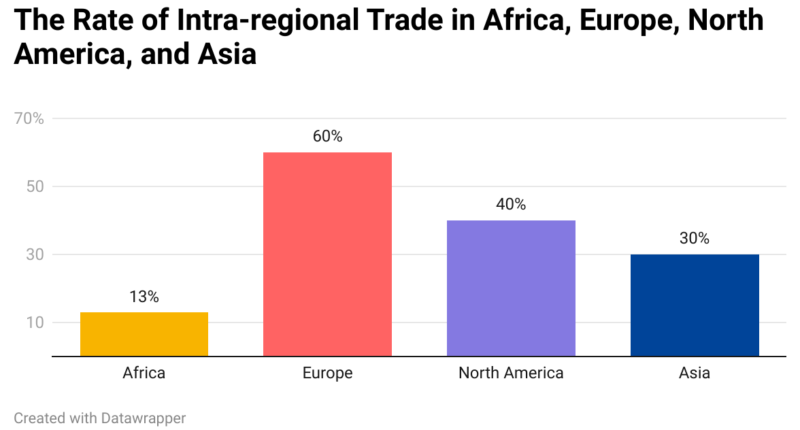Trade is a vital indicator of economic growth and development. Many countries around the world have exonerated their citizens from poverty through intra/inter trade relations. Africa, however, continues to suffer a drag in the achievements of sustainable economic growth and development due to the poor rate of intra-trade relations amongst its member nations.
A report by the African Union quoted the continent’s intra-regional trade at just 13 percent, compared to about 60 percent, 40 percent and 30 percent intra-regional trade that Europe, North America and ASIA have respectively achieved. This is as Africa is currently the world’s poorest continent with a GDP Per capita of US$ 2,182. Still, there is no urgency in addressing this issue.
Why it matters
Africa’s inability to synergize and complement its individual economies has cost the continent unlimited growth that mutual integrations would have provided. For context, there are products and services that can be sourced from other African nations but are procured from outside the continent.
- The continuation of this economic trend would continue to limit the potential that exists within the bounds of intra-African trade.
The big picture
Recent reports have predicted that Africa’s untapped export potential is worth about $21.9 billion, equivalent to 43 percent of intra-African exports. The continent can also achieve an additional $9.2 billion of export potential through partial tariff liberalization under the African Continental Free Trade Area (AfCFTA) for the next five years.
Looking forward
Africa needs to address several intra trade barriers, including costly non-tariff measures, infrastructure gaps, and market information gaps, among others. Also, long-term economic cooperation from African nations in investment and trade policies will be essential in achieving market dominance and reducing structural and regulatory market friction.

